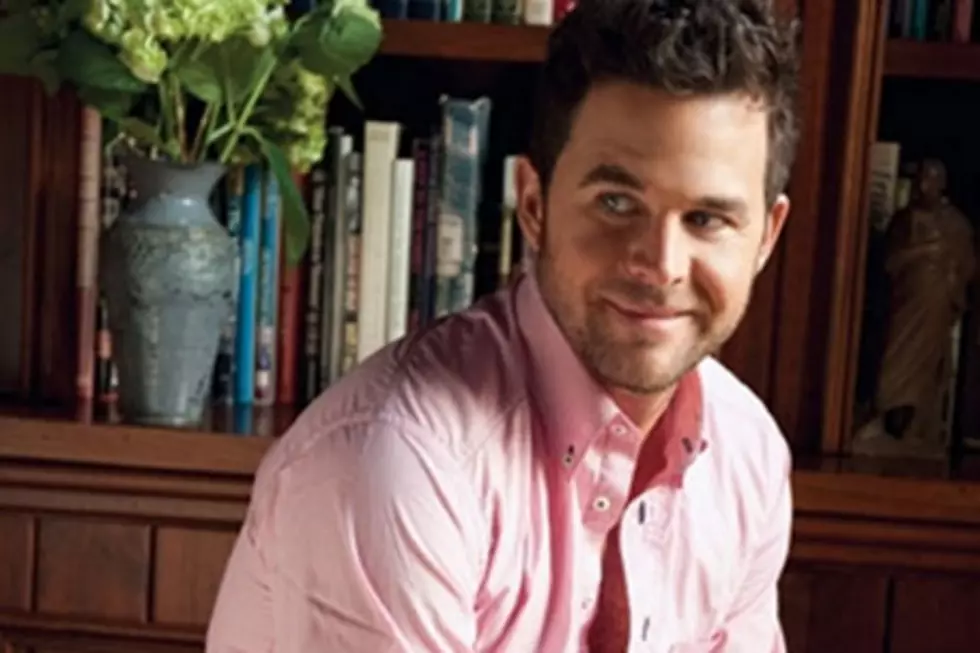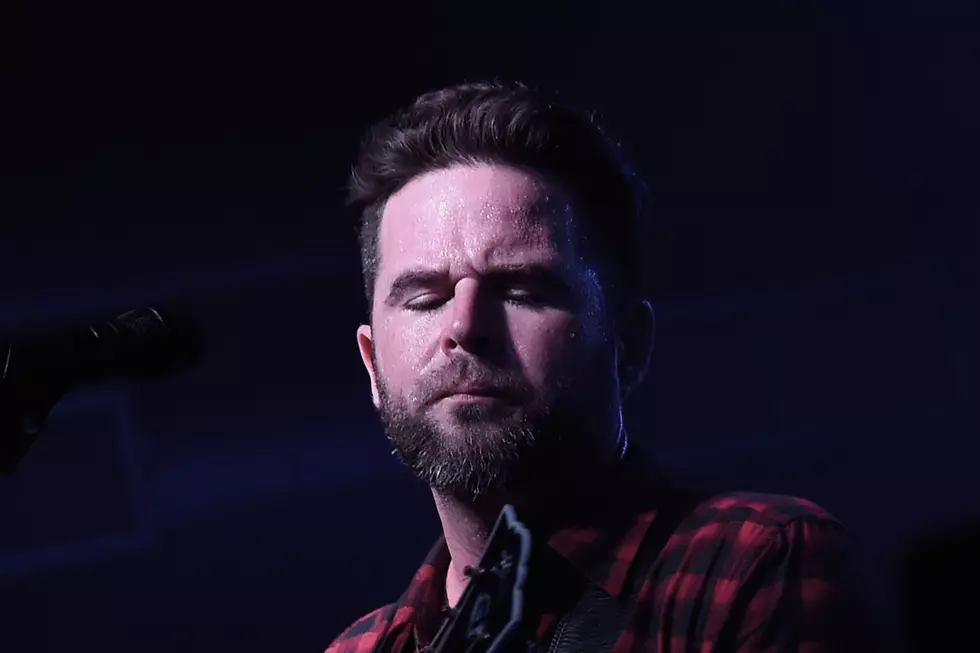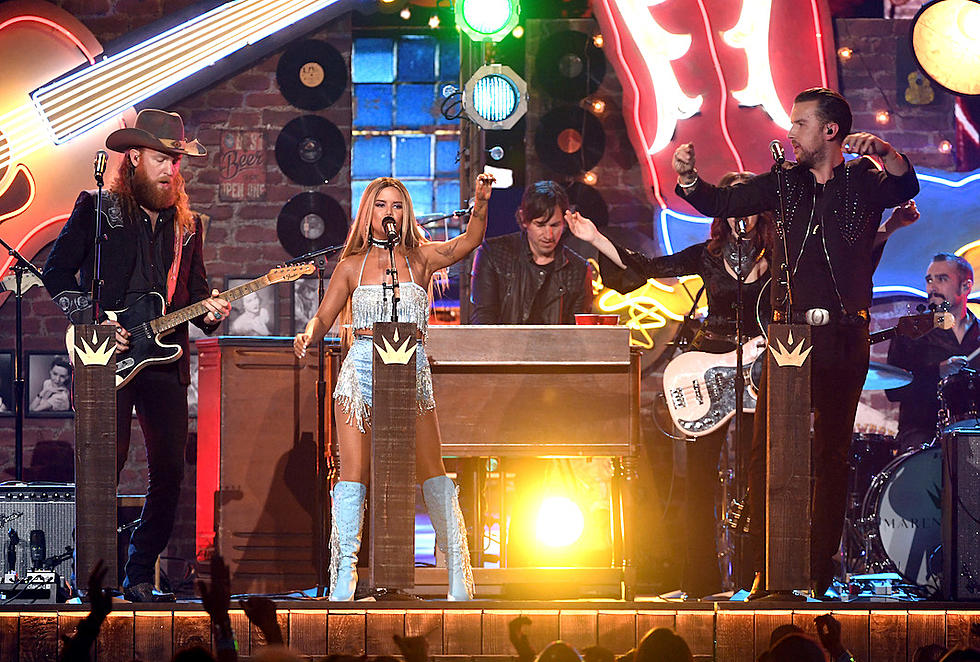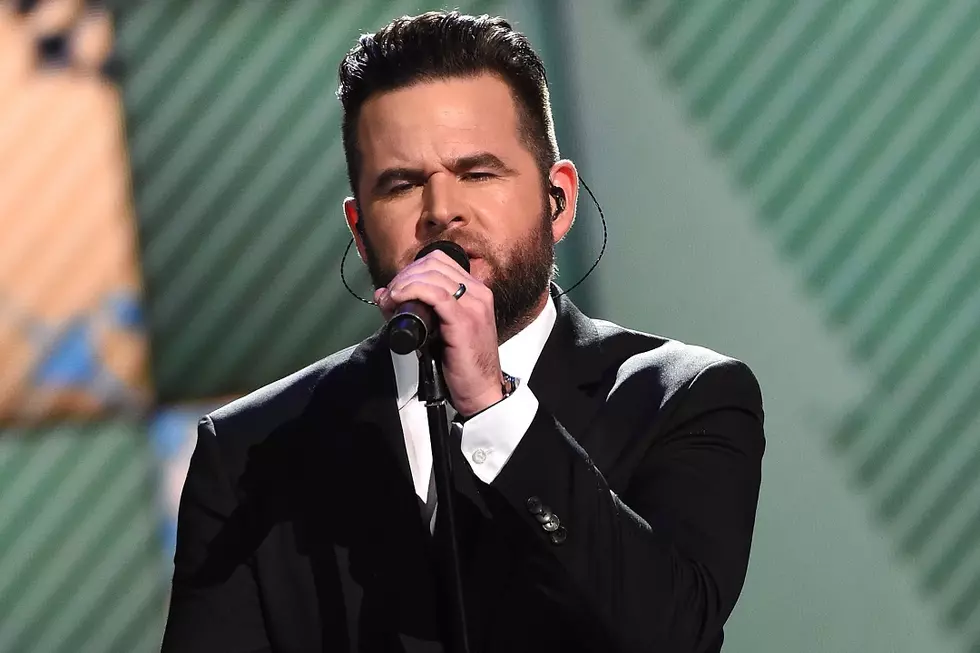
David Nail’s ‘Dreams’ Echo His Life
David Nail established himself as one of the strongest, most unique voices in country music with hits like 'Red Light,' 'Turning Home' and the title track of his 2009 album, 'I'm About to Come Alive.' An ACM nomination for Single of the Year ('Red Light') and a Grammy nod for Best Male Country Performance ('Turning Home') later, and the Missouri native is back with a brand-new project that's already showing similar success.
Appropriately titled 'The Sound of a Million Dreams,' David's new album, out today (Nov. 15), is sprinkled with stardust. It has already spawned the hit song, 'Let It Rain,' a tune he co-wrote with Jonathan Singleton that features guest vocals by Sarah Buxton. Lee Ann Womack offers harmonies on another track, while Keith Urban, Lady Antebellum's Charles Kelley and Dave Haywood, Phil Vassar, and Eric Paslay all have songwriting credits on the CD.
The project mines familiar territory on heartbreakers like 'Let It Rain,' about a cheating spouse seeking to wash clean his sins in a downpour, but it also shows another side to the country crooner on barnburners like 'Grandpa's Farm,' where he opens the throttle and throws down, church-on-Sunday-morning style. The Boot sat down with David to talk about his big year of touring with Lady A and Taylor Swift, his love of that 'California country' sound, and a 'Hill' he almost didn't make it up while recording this new album.
Tell us the story of the 'Let It Rain' writing session with Jonathan Singleton.
I didn't know him that well, and he came in that morning and was just all over the place and couldn't sit still, and I'm kind of that way too, but I was on my best behavior for this writing appointment. We're walking outside, and the whole time he's playing this guitar lick. Jonathan's such a phenomenal guitar player, and it was the first time I've really been able to just sit back and really focus on the words and let somebody else worry about the melody. It's funny because it came out so effortlessly, and the couple of times we've gotten back together since then, we're amazed at why we can't think of anything! That one ruined it for us, it was so easy. Now we're having to work at it -- we just can't figure it out. [laughs]
Lee Ann Womack's husband, Frank Liddell, produced the album, but that's not actually how you scored her vocals on 'Songs for Sale.' How did your duet with her come about?
I did a St. Jude's benefit a few years ago, and someone donated a lot of money for her to come up and sing with me. We had never sung together before -- we had only known each other for about a month, and she just told me to sing whatever and just harmonized with me. I remember halfway through it, I'm just sitting there shaking thinking, 'Holy smokes, Lee Ann Womack's singing harmony with me!' It was a special song for a special moment. And when it came time to do this record, she was definitely the one person I hoped to work with.
You're an incredible vocal stylist, but do you worry about being pigeonholed as being a ballad or mid-tempo guy, since you've had so much success with slower songs?
It's funny because obviously 'Turning Home' is a bonafied ballad, but if you come to our shows, 'Red Light' and even 'Let It Rain' -- if you walk away from our shows thinking those are ballads then God bless you, because I definitely don't think either one of them really are! But 'Grandpa's Farm' on the new album is one of the coolest things we've ever done. It serves a purpose. The songs we've had on the radio may be more of mid-tempo feel, but I definitely think that in the last year, we've cranked it up live.
You cut 'Desiree' -- a song Keith Urban sang with the Ranch. What was it about that song that you loved, and why put it on this album?
I'm a huge Keith Urban fan. When I first moved to town, there were two records that I absolutely obsessed over: the first Chris Knight record and that Ranch record. It was my first introduction on how sometimes the best records aren't always the most commercially well-received. We had been talking about doing that live, and we like to do covers that not everyone's gonna know. A couple days after we had begun working on it in sound check, one of our A&R guys called me asking about me cutting it. I felt like it was fate. So we cut it, and it was really difficult. I covered [Train's] 'I'm About to Come Alive' on my first record, and I had been playing that live for years before we cut it, so in a lot of ways I think people in town felt like that was one of my songs. I've been singing it so long, it just felt like one of mine. But with 'Desiree,' it was completely the opposite. I'd never really sang it consistently and was very nervous about our arrangement, but some people who are close to Keith convinced me that Keith will respect you for doing your own thing with it and staying true to yourself. I feel like we paid tribute to the original but at the same time kind of made it a David Nail song, too.
You wrote 'I Thought You Knew' with Lady A's Charles Kelley and Dave Haywood. Did you have a chance to write a lot with them while you were out on tour together?
No, that was actually just one day we spent together. They were busy writing for their new record, and they were gracious enough to invite me to be a part of it one day. Charles and Dave both love writing and work hard at it. It was cool to see them attack songwriting from a different aspect. They're both very melody driven, and Charles was rattling off all kinds of lines and stuff that don't always go together but they were so cool and unique, and we eventually figured out a way to make them all work. They work their asses off. We played 32 dates, so that was the first long tour that I've been on, and to see how they handled every day was pretty inspiring. It showed me they're not just where they are because they had a great song -- they work their butts off, too.
You aimed for a sort of countrypolitan sound on this new album. What do you like about that era of music? I know you're a big Glen Campbell fan, and he influenced you a lot.
I never really heard that term until we were talking about this next record. I always called it California Country -- it has that core that if you strip it down is country music, but whether it's the strings, or the horns or some extra guitars, it just gives it that breezy California feel. And if you listen to my voice, there's certain kinds of songs that I just sound ridiculous singing! So I've always kind of been drawn more toward the Vince Gill way of doing things. And Glen Campbell, as far as I'm concerned, is as cool as it gets. My favorite Glen song is 'Country Boy You Got Your Feet in L.A.' It's got strings all over it, but it's the countriest lyric in the world. And that's the thing I hope to achieve. Back then that was such an accepted thing, and I hope people give this album the same opportunity. Glen Campbell grew up in a tiny town in Arkansas, and I grew up four hours away [in a town] that's just as tiny, and we're just hoping to maybe take up a little corner of the big genre that is country music.
Phil Vassar and Scooter Carusoe wrote your title track, 'The Sound of a Million Dreams,' which you describe as the story of your life until now.
Scooter is such a picture writer. He's all about images, pictures and descriptions, and he paints a picture putting you right there in the spot. As soon as I heard this song, I knew by the third line I was gonna cut it. It's one of the more brilliant songs I've ever heard, regardless of whether I was gonna sing it or not. I can remember being so nervous that someone else was gonna hear it and cut it before me -- I loved it that much.
'Half Mile Hill' ended up being a really personal song for you. What was it about that song you loved and feared at the same time?
I was really hesitant to cut it, because it is a reflective song referencing the past and there was so much of that on my first record ... I wanted to stay away from it. It's a very honest and personal song and something I didn't ever want to relive again. But somebody told me, 'That's an important part of your life, and rather than run away from it you ought to embrace it, if for no other reason than it's always gonna serve as a reminder of what you've overcome.' So the first time I heard this, I pulled off near some baseball fields outside Nashville [where] you start to feel like you're not in the city anymore. I remember seeing 150 people out there, scattered around the field, little kids playing baseball. It made me remember that time in my life where the whole social setting of the town the size of mine was you went to the ballpark -- whether you had kids that played [or not] -- and that's where you hung out. That was our mall.
I can remember dating this girl that entire summer when I was 17, and she was just running me around crazy. Looking back, she had no interest whatsoever in ever settling down, but she would always give me enough to keep me hanging on. To me, 'Half Mile Hill' is about finding yourself and coming to the crossroads where you look back and you go, 'That moment in my life sucked, and maybe in this moment I'm miserable, but I can see the light at the end of the tunnel and all of this is going to make me a stronger person. My mother and father have been married for 40 years, and I can remember when we finally decided to cut it, I just could see that kid, 8 years old, I could feel it. We had two takes on the vocal, and I just felt like this is the type of song that needs to be raw, and if I hit wrong notes they're going to be for a reason.
You were out on tour this year with Taylor Swift, the reigning CMA Entertainer of the Year. Did you pick up any tips from her?
My respect and admiration for that girl, at 21 years old, to be that hands on. Her fingerprints are all over that tour. The few times I've seen her in sound check, she's telling people where to stand, she's telling the lights where to go, she's telling the dancers where to dance and she rehearses like there's 25,000 people out there. To do that at that level, at that age, writing these songs by herself, co-producing them, I don't think we've had an artist like her. And as far as the crowds, my wife went to a show in Memphis a couple of days ago and she was singing every word, and she's 28 years old. In reality, Taylor [has] the biggest tour in the world. She deserves Entertainer of the Year just because of the amount of people she's played for, and the tickets she's sold. Every show we've played has sold out in minutes, so she's a badass.
More From TheBoot





![David Nail Captures Summer Love With New Song, ‘Sunset Carousel’ [Listen]](http://townsquare.media/site/204/files/2022/06/attachment-David-Nail-Song-Sunset-Carousel.jpg?w=980&q=75)

![David Nail Drops Poignant, Acoustic Version of ‘Comeback History’ [Exclusive Premiere]](http://townsquare.media/site/204/files/2021/11/attachment-David-Nail-1a.jpg?w=980&q=75)

